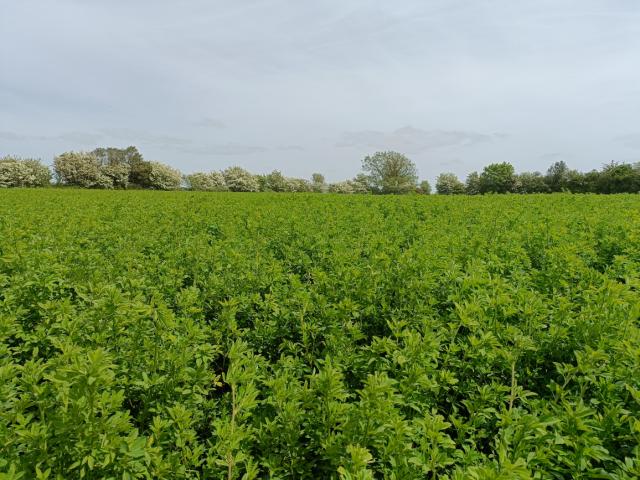INNOVATIVE SOLUTIONS FOR A SUSTAINABLE FUTURE
At DLF our research and development team are committed to developing grass and forage solutions to maximise the sustainability of Irish dairy, beef and sheep production. For any of our varieties or mixtures to be truly sustainable it must tick each of the three pillars of sustainability: Economic, Environmental and Social.
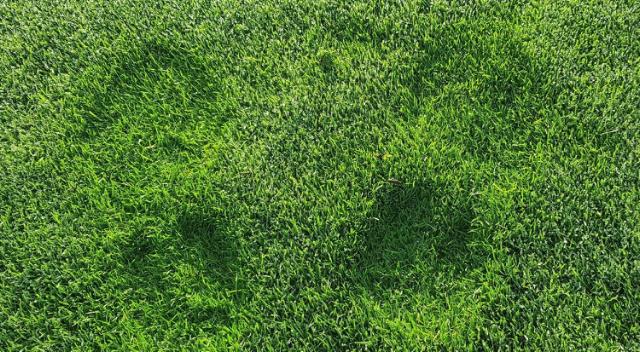
Impact on climate and environment
Real sustainability is good for the environment, good for your pocket and enhances our communities and society in many different ways.
Through our research trials at Faithlegg in Co. Waterford and with our Grass Partners around the country we are seeing how the adoption of the latest forage mixtures and genetics from DLF are improving the sustainability of Irish agriculture.
Better Grass Utilisation
The success of grass-based systems is not only dependent on how much grass is grown, but how much grass is utilised. Every additional tonne of dry matter utilised could be worth up to €181 per hectare and reduce GHG emissions intensity by 4%. DLF grass varieties are some of the top performers for Grazing Utilisation on the PPI so using them will increase grass utilisation on farm.
White Clover
One of the easiest ways to reduce fertiliser use on-farm is to incorporate white clover into grazing swards either through reseeding in mixtures with grass or oversowing into existing swards. Our white clover varieties are bred to perform and persist in Irish conditions.
Multi-Species Swards
Our specialist topic! We have led the promotion of Multi-Species Swards in Ireland and see how these diverse mixtures can help farmers reduce N fertiliser application, improve animal performance and protect against drought.
Sustainability
Sustainability will be priority in all aspects of life going forward and the DLF team are already looking to the future. Our breeders are investigating additional traits to maximise sustainability like root mass for drought tolerance and carbon sequestration in grasses, enhanced biological N fixation in white clover and red clover varieties more tolerant of grazing. These traits, combined with dry matter yield production and quality will go a long way towards making DLF varieties and mixtures the most sustainable on the market.
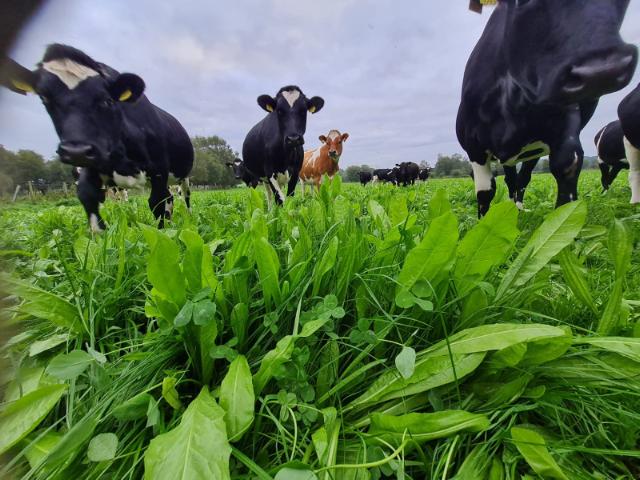
We Turn Science Into Growth
DLF is the largest grass and forage breeder in the world, and with the support of our global R&D programme, DLF Ireland continues to invest in Irish farming with a complete lab to farm research programme. Our trial site in Co. Waterford is now over 65 acres and contains over 2,500 trial plots evaluating the latest varieties of Perennial Ryegrass, Festulolium, White and Red Clover, Herbs and Maize.
In recent years we have began sowing new material bred specifically for Ireland, in Ireland, to deliver grass varieties that can stand up to the Irish climate and excel in Irish grass-based systems. This strategy is already baring fruit with Nashota, Bowie and Anurad all developed using this strategy.
DLF Grass Partner Farm Programme
Our Grass Partner are a key component of our R&D programme. This is where we bridge the gap between controlled laboratories and field plots to the cut and thrust of a working farm and all of the challenges presented by management, livestock and weather.
With the Grass Partners we can road test new varieties, mixtures and concepts analysing their utilisation, DM yield production, quality and ultimately, animal performance and profitability. They are a focal point for best practice management and emerging forage solutions demonstrated on real working farms.
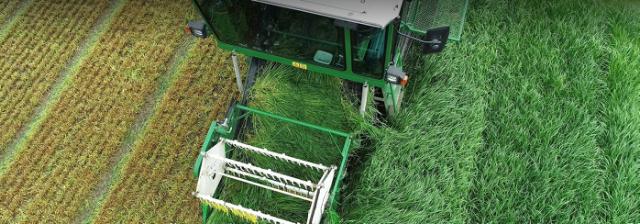
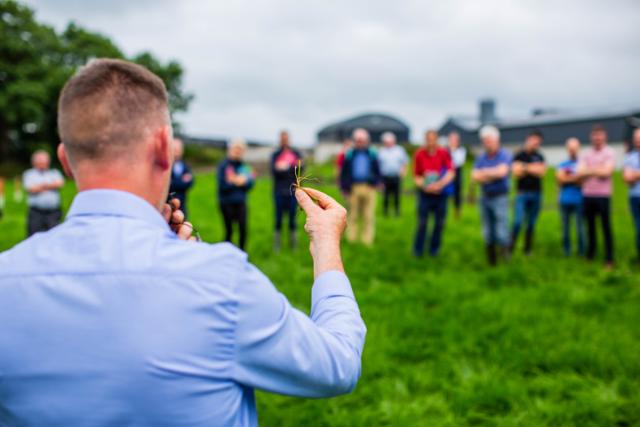
Partner Farm Grazing Trial
In 2021 our on-farm variety evaluation reached a significant milestone with the establishment of the DLF Variety Grazing Trials. Based on the grazing trials at Teagasc Moorepark, this ambitious project will provide on-farm evaluation of the latest genetics from our breeders, sown in 3 x 7m plots, and managed under real-life grazing conditions on our partner farms in Kerry, Meath, Waterford and Offaly.
Throughout the grazing season these varieties will be assessed on their yield, quality and most importantly their grazing efficiency and utilisation. The performance of this new material will be compared to that of some of the most popular varieties currently on the market.
When these new varieties eventually make it onto the DAFM Recommended List in 3-4 years’ time, our Grazing Trial results will provide an accurate assessment of the actual on-farm performance of these varieties. This practical on-farm data can be used by farmers in combination with DAFM cutting data from the Recommended List trials and economic model predictions from the Pasture Profit Index to make better informed decisions on which varieties to select for their farms.
We have already identified an outstanding candidate from these trials in the form of a Late Tetraploid called Vast. This variety is showing exceptional spring growth rates with the joint lowest average graze-out of the 21 varieties on the trial – definitely one to watch out for in the next few years.
Diversity & Diversification
Diversity and diversification are often highlighted as a means of achieving sustainability on the farm. A diverse cropping system can provide high quality, home-produced feed for your livestock leaving your system buffered against volatile global markets and increasingly common extreme weather events. There are also many environmental benefits to home-grown feed, especially offsetting protein imports.
Our Grass Partners are seeing firsthand the benefits of growing crops like red clover, maize, beet and arable silage can have on their bottom line.
